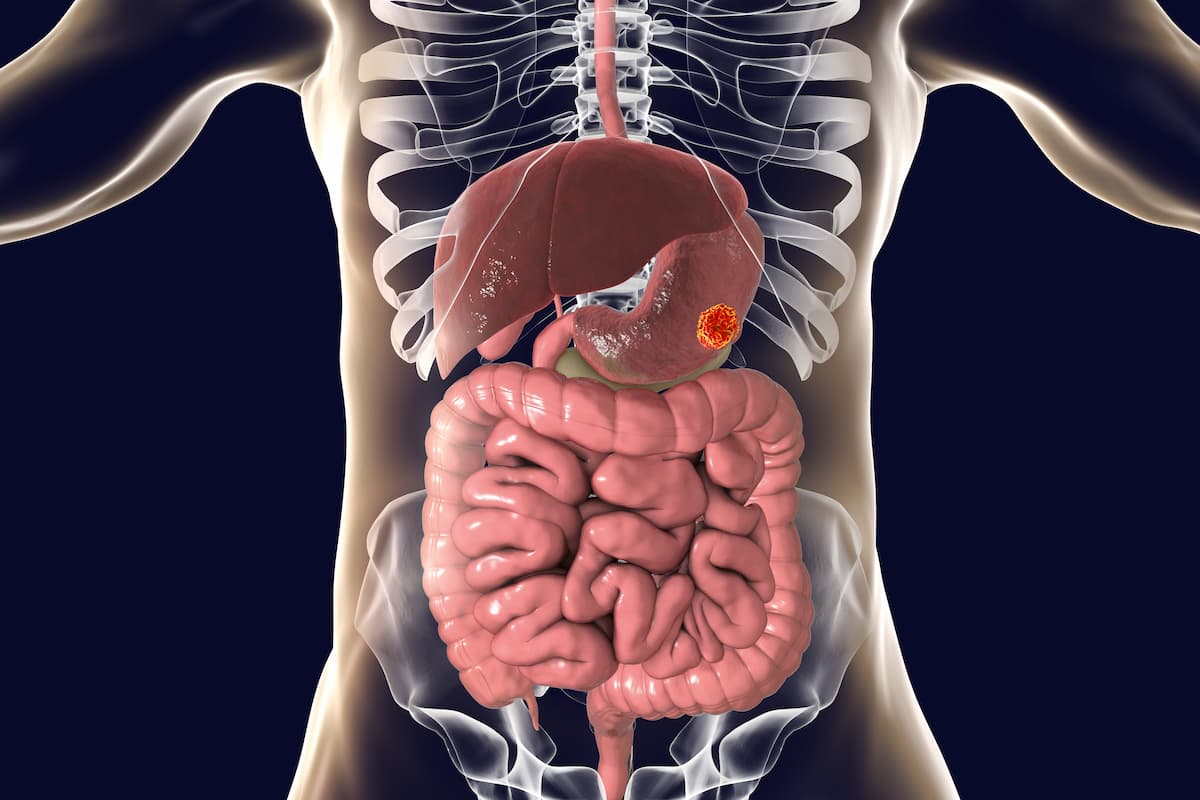FDA Grants Orphan Drug Designation to ADRX-0405 for Gastric Cancer
Results from the phase 1a/b trial evaluating ADRX-0405 in various solid tumors, including gastric cancer, are expected to come in late 2025.
Results from the phase 1a/b trial evaluating ADRX-0405 in various solid tumors, including gastric cancer, are expected to come in late 2025.

The FDA has granted orphan drug designation to ADRX-0405, a STEAP1 antibody-drug conjugate (ADC), for the treatment of patients with gastric cancer, according to a press release from the developer, Adcentrx.1
The developer noted that although STEAP1 is generally associated with prostate cancer, it is also meaningfully expressed as a target in gastric cancer. Thus, it offers potential for future clinical development. In preclinical studies, the agent demonstrated favorable pharmacokinetics, safety, and efficacy across various animal models.
The agent consists of a humanized IgG1 antibody and a novel topoisomerase inhibitor linker-payload through Adcentrx’s i-Conjugation technology platform. The technology permits a highly stable ADC with a drug to antibody ratio of 8 to maximize payload delivery to solid tumors.
ADRX-0405 is currently being evaluated in the phase 1a portion of a phase 1a/b trial (NCT06710379) evaluating its safety, tolerability, and pharmacokinetics in advanced solid tumors such as metastatic castration-resistant prostate cancer (CRPC), non–small cell lung cancer (NSCLC), and gastric cancer.
Previously, in January 2025, the first patient in the trial was dosed; it was reported that initial results are expected in the fourth quarter of 2025.2
“Receiving orphan drug designation from [the] FDA is a notable milestone for Adcentrx and reinforces the potential for ADRX-0405 to improve the lives of patients with gastric cancer,” said Hui Li, PhD, founder and CEO of Adcentrx, in the press release.1 “We are encouraged by the progress of our phase 1a trial and look forward to further evaluating the safety, tolerability, and antitumor activity of ADRX-0405 in gastric and other cancers.”
The phase 1a/b trial consisted of a dose-escalation portion that evaluated the initial safety and tolerability of ADRX-0405 and identified the recommended dose for phase 1b, and the phase 1b portion continued to evaluate the safety and tolerability, the preliminary efficacy, and the optimal dose of ADRX-0405 in select tumor types.3
The trial had an estimated enrollment of 68 patients. In the phase 1a portion, eligible patients had histologically confirmed advanced solid tumors, including metastatic CRPC, NSCLC, and gastric cancer. In the phase 1b portion, eligible patients had histologically confirmed prostate adenocarcinoma identified to be castration resistant and intolerant to standard-of-care therapies. Additionally, all patients had measurable disease per RECIST v1.1, an ECOG performance status from 0 to 1 in part 1a and 0 to 2 in part 1b, and adequate hematologic, liver, and renal function.
Exclusion criteria included active and uncontrolled central nervous system metastases, significant cardiovascular disease, history of malignancy other than the one treated in this study within the past 3 years, receipt of anticancer or investigational therapy within 5 elimination half-lives or 14 days, history of pneumonitis that required steroids within 2 years of study enrollment, and receipt of systemic antimicrobial treatment for active infection.
In phase 1a, ADRX-0405 was administered in increasing doses to identify the maximum tolerated dose and the recommended dose to be used in the phase 1b portion.
The trial’s primary end point was the incidence of adverse events (AEs). The secondary end points included end of infusion or observed maximum blood concentration, trough concentration, terminal or apparent terminal half-life, objective response rate, duration of response, disease control rate, progression-free survival (PFS), radiographic PFS, and overall survival.
The trial was conducted in the US, with 8 total locations across California, Michigan, Minnesota, Texas, Utah, and Virginia. The estimated trial completion date is December 2026.
References
- U.S. FDA grants orphan drug designation to Adcentrx Therapeutics’ ADRX‑0405 STEAP1 ADC for gastric cancer. News release. Adcentrx Therapeutics. July 8, 2025. Accessed July 9, 2025. https://tinyurl.com/3wsxaej5
- Adcentrx Therapeutics announces first patient dosed in the phase 1a/b study of ADRX-0405, a potential first-in-class ADC targeting STEAP1 for the treatment of advanced solid tumors. News release. Adcentrx Therapeutics. January 6, 2025. Accessed July 9, 2025. https://tinyurl.com/3hkyhaah
- A study of ADRX-0405 in subjects with select advanced solid tumors. ClinicalTrials.gov. Updated April 9, 2025. Accessed July 9, 2025. https://tinyurl.com/kfj7j3pb